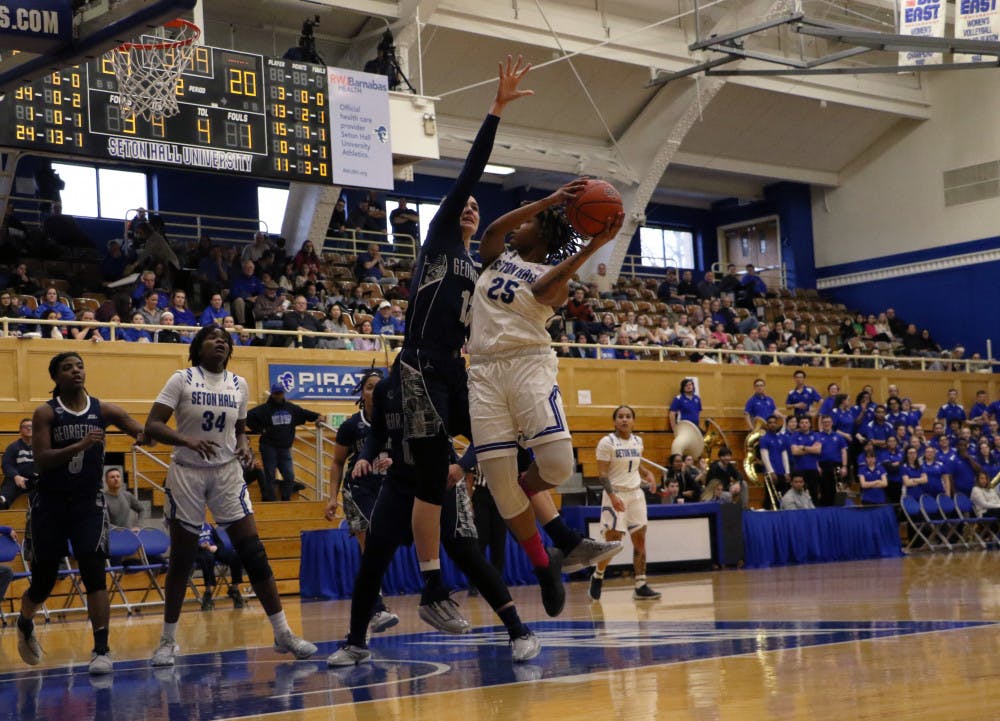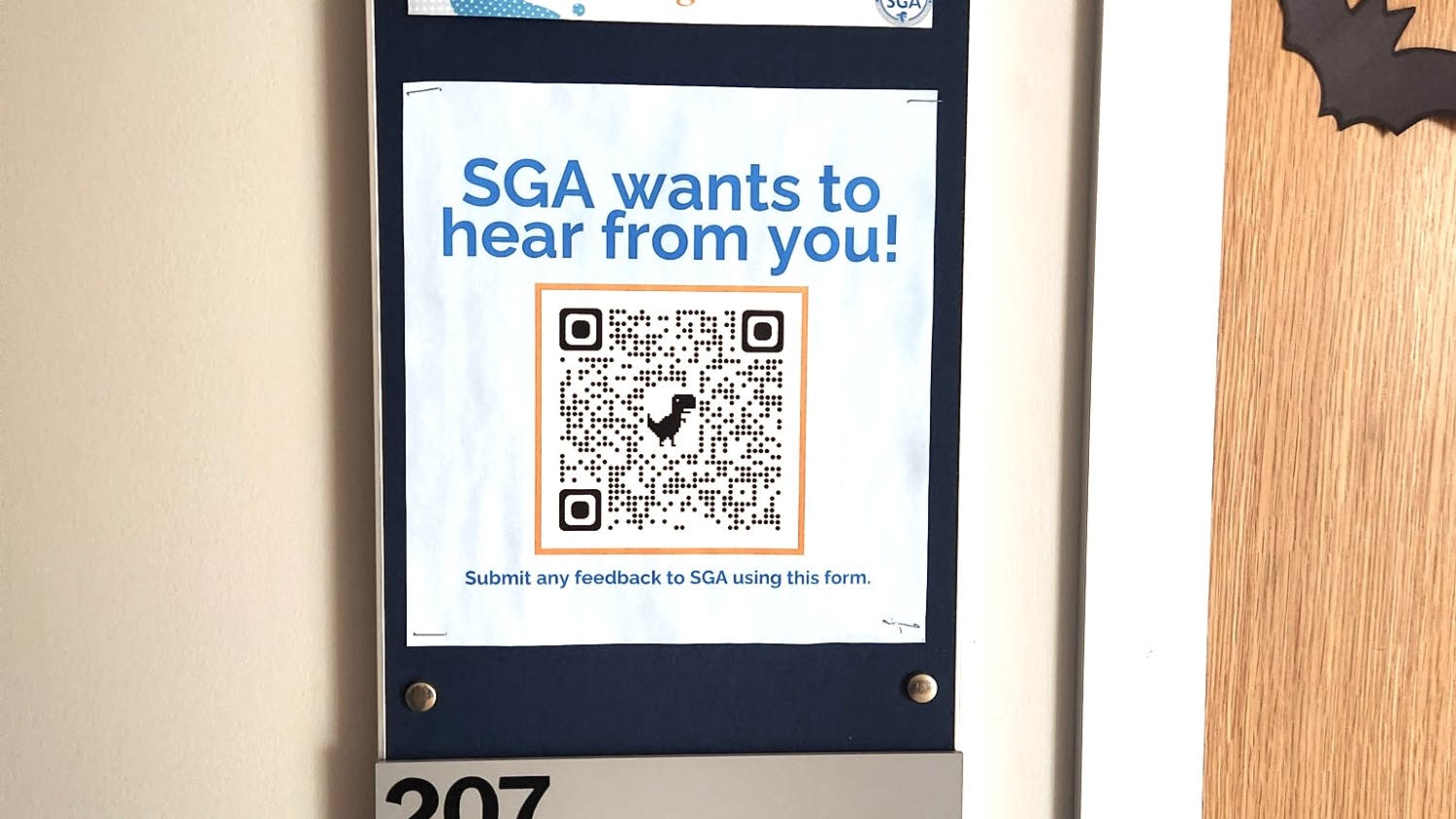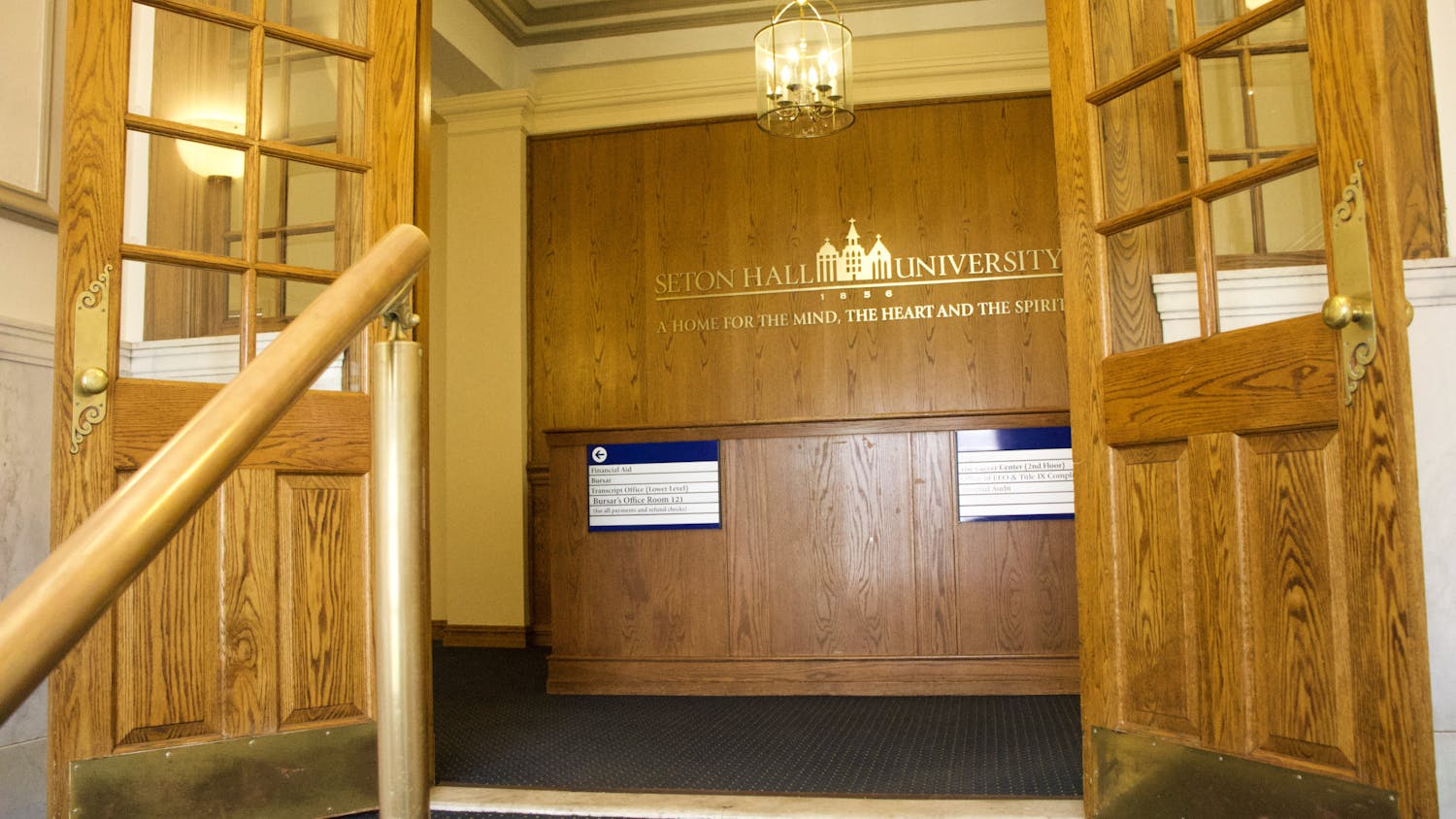As the College of Cardinals prepares to travel to Rome for Conclave in light of the first resignation of the papacy since 1415, much of the world will be watching. Members of the Catholic community at Seton Hall expressed gratitude to Pope Benedict XVI and offered predictions for the uncertain future of The Vatican.
Monsignor Robert J. Wister called the resignation an "act of great humility."
"I am grateful and inspired," Msgr. Wister said. "He pushed himself aside for the good of the church."
A statement from Most Reverend John J. Myers, Archbishop of Newark, said "Over the decades our Holy Father has proven to be a sensitive pastor, a brilliant scholar and teacher with a profound and stalwart faith in our Loving God and His Son Jesus Christ."
Joseph Pastino, a 2012 alumni and current Housing staff member who pursued Catholic Studies at Seton Hall, explained his feelings on the resignation announcement.
"I never thought I would see a papal resignation in my lifetime," Pastino said. "However, I deeply admire the humility of our Holy Father and I respect his decision. I will keep him, as well as his successor, in my prayers."
For the time that it takes to elect a new pope, Msgr. Wister said the process could take anywhere from one day, like it did in 1939, or two and a half years, which only happened in the thirteenth century.
Msgr. Wister said he believes Pope Benedict XVI feared a medical crisis and not having enough energy to handle the current issues facing the Church.
If the pope were incapable but still alive, he said, the church has no regulations that could force the Pope to resign in a time of illness.
Dr. Thomas Rzeznik, history professor, agreed and said that Pope Benedict XVI did not want to be a pope who was frail for a decade or longer, and that his resignation will prevent a "lame duck" period within The Vatican.
There is no system of checks and balances for the papacy, Msgr. Wister explained. The pope acts on day to day crises, promoting peace, and serves as a mediator while participating in discussions with cardinals from international denominations.
On the impact of this on future popes, Msgr. Wister said that the possibility of resigning in times of great illness will become a common question.
"He is admitting that no human being is irreplaceable," Msgr. Wister said of Pope Benedict XVI.
This is not the first time resignation was suggested. In the last five years of his papacy, John Paul II battled illness to the point where he could not speak or walk. Msgr. Wister said that people proposed the idea of resignation in that time as well.
Pastino said that he welcomes the change. "I have the utmost respect for Pope Benedict XVI, his knowledge and leadership has helped the Church tremendously," he said. "One example of his leadership is reflected in the successful Liturgical changes enacted last year."
Rzeznik said he believes that modernization is a part of the discussion.
"This is kind of an interesting thing," Rzeznik said. "Here's a pope who's a traditionalist who did something radical. He's mindful that he doesn't want to modernize the Papacy."
Msgr. Wister said that the position is "up for grabs" and will require much consultation. The next pope could be a tenured or fairly new cardinal. According to Msgr. Wister, twice in the past century, cardinals who served for about one year were elected to the papacy.
Rzeznik posed a question reflecting on the future possibilities.
"I think like everybody else, there's always this 'what will it be?'" Rzeznik said. "There's always this concern and excitement at the same time that the pope will bring what you want."
Pastino said his hope is that the next pope will be "energetic, ambitious, and eager to actively promote and preserve the faith."
When asked about the pope's role in a changing modern world, Rzeznik said "the pope needs to come to terms with the technology of the times."
Rzeznik added that this change "calls us back to the essentials. It's going back to the roots, and in its own way, that is modernizing it."
Pastino said he believes that his generation is "in desperate need of a voice that will stand by principle, who will defend the dignity of all human persons, who will stand up for freedom conscience, and who will work to promote the common good, regardless of age."
Pastino also said he does not believe it is the role of the Pope to accommodate "beliefs contrary to the faith."
As a member of the upcoming generation, Pastino said that, to him, the Pope is "more than a figurehead; he is the leader of the Church and the representation of God's love for us."
Msgr. Wister said that young people look to leaders of the church. "(Leaders) can seem attractive or off-putting," he said.
For the younger generation of Catholics that may be unsure of how to interpret this and other events in the Church, Msgr. Wister said they can look to their own parishes. "Look at the office rather than just the personality," he said. "The office remains, but the man changes."
Charlotte Lewis can be reached at lewischa@shu.edu.





